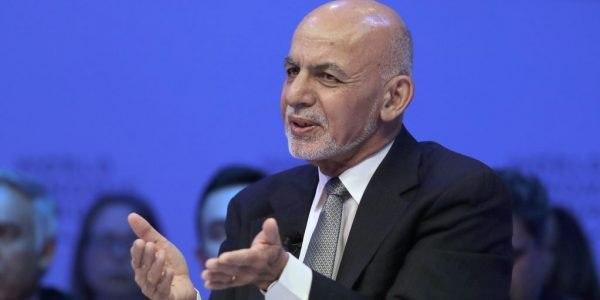Just a day after his inauguration ceremony, President Ashraf Ghani signed a decree to facilitate the release of Taliban prisoners who are under custody of the Afghan government. The decree, however, has been issued while earlier this month he had said that principally his government was not committed to release the Taliban inmates and no one could force him to release them unconditionally.
Many people in Afghanistan reacted to Ashraf Ghani’s decree which facilitates release of Taliban prisoner. Several Afghan nationals who are critics of unconditional release of Taliban prisoners, expressed outrage and criticism on the decision made by Ghani. Some of Ghani’s critics believe that he agreed to release the Taliban prisoners in exchange for receiving international recognition for his term in office.
“Ghani was at first totally against the release of Taliban prisoners, but just to stay on the throne for few more years, he is releasing the prisoners,” Faiza Tajikyar wrote on her twitter account. Replying to a tweet of the Presidential Palace, including the decree, Alam Khan said that unconditional release of the Taliban prisoners is a complete violation of the rights of the Afghan people and a disrespect to sacrifices so far made by Afghan security forces.
Former Afghan spy chief, Rahmatullah Nabil, denounced Ghani’s change in position, calling it a “shameful deal” and a “desecration of sacrifices” made by Afghan defense and security forces (ANDSF).
“After lying to people of Afghanistan, finally, Ashraf Ghani signed the order to free 5000 Taliban murderers,” said Massoud Hossaini, an Afghan journalist, adding that Ghani is using the government to secure interests of his own family.
The decision by Ashraf Ghani sparked concerns for some women about a possible compromise on the women’s rights in Afghanistan. Taking on the issue on her Facebook account, Zubaida Akbar, argued that the prisoners release indicates intra-Afghan talks will be just a power-sharing negotiation between the men and their sustained reign on power. “Perhaps, our concerns, as Afghan women and citizens of Afghanistan, will not be given any importance [in the intra-Afghan talks],” she added.
Meanwhile, Chairwoman of the Independent Human Rights Commission (AIHRC), Shahrzad Akbar, has criticized that there is no clarity on engagement of any independent human rights entity in the prisoners’ release process. The AIHRC had previously asked for clarifications on the due process, about prisoners kept with the Taliban, and justice for the victims. Neither the Afghan government, nor the Taliban have made any formal responses to the questions.
“What specific mechanisms and processes will allow victims of prisoners to access justice now, and in the future? How will these fit into wider mechanisms to ensure that any peace process includes a roadmap to justice for millions of Afghan victims?” she asked in a tweet posted today, March 11.
In a joint declaration with other human rights organizations, the AIHRC have urged all warring parties to hold a nationwide ceasefire during the intra-Afghan peace talks. The declaration reiterates on protecting women’s rights and freedom, values, freedom of speech, freedom of press, freedom gatherings, and the right to have social and political activities. “These things should not be sacrificed in [peace] talks and peace agreement,” it further stressed.
Taliban reject Ghani’s conditional release of prisoners.
As Ghani’s decree states, the release process of 1,500 Taliban prisoners will be started on Saturday, March 14, with every 100 prisoners to be discharged on daily basis after completing a due process and making pledge not return to fighting. Release of the remaining 3,500 detainees of 5,000 prisoners agreed in US-Taliban deal, will begin once the intra-Afghan talks is kicked off. Ghani has ordered Afghanistan National Security Council to take charge of the process.
The decree details that every prisoner will be released considering their health condition, the time they have passed in prison, and their ages.
Briefing the press today, March 11, President Ghani’s spokesperson, Sediq Sediqi, also reiterated that the Taliban prisoners will be released based on conditions set in the decree.
The Taliban, however, have immediately rejected Ghani’s prisoners’ release plan, saying that they have already submitted a detailed list of the 5,000 prisoners to the Americans. “Our very condition is that the detainees are acceptable if verified by our team,” said Suhail Shaheen, spokesperson of the Taliban political office in Doha, Qatar capital.
In an interview with Reuters, he said that they have never agreed to any “condition release” of prisoners. “If someone claims this, it will be against the peace accord that we signed on February 29,” he added.




